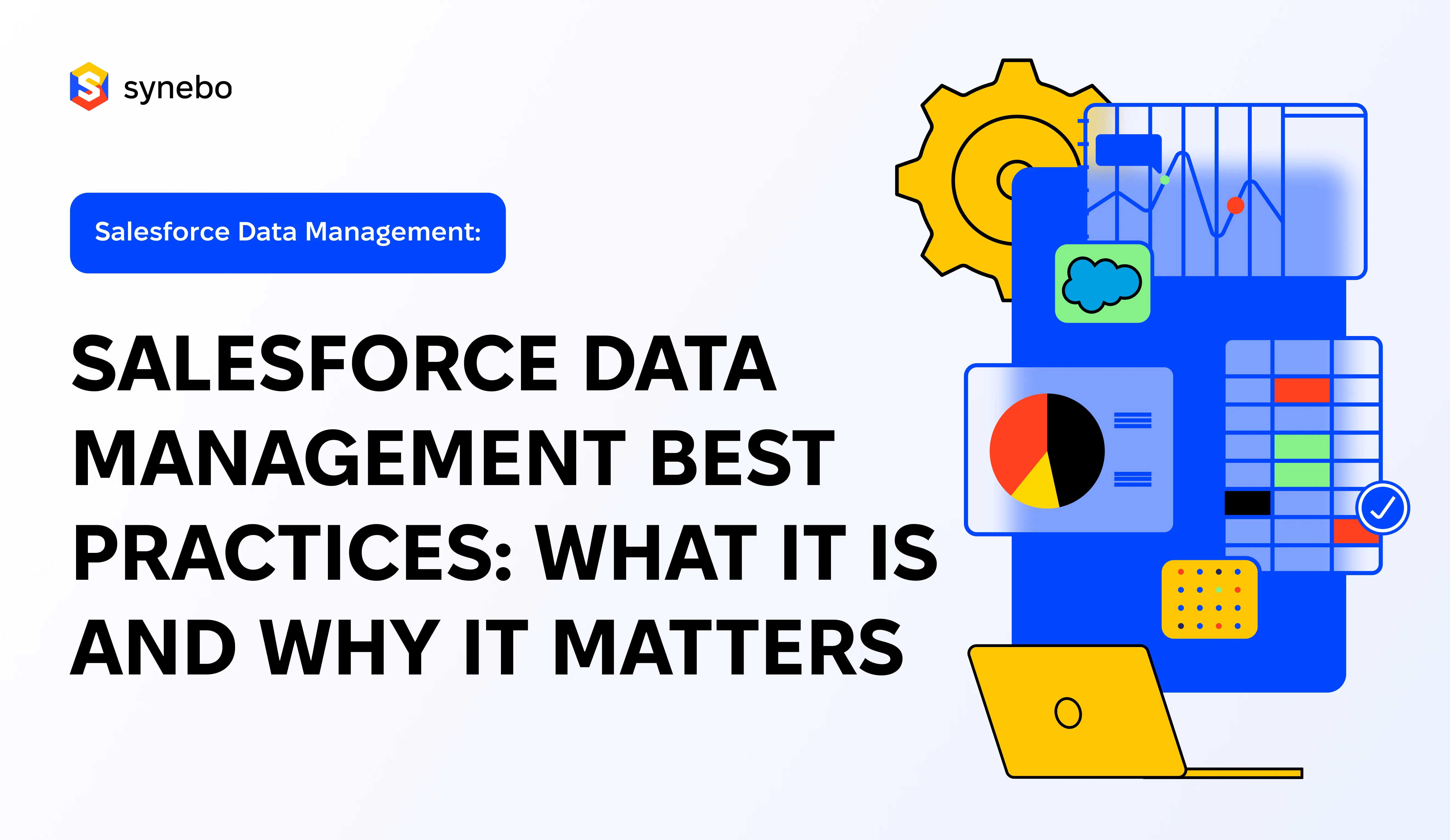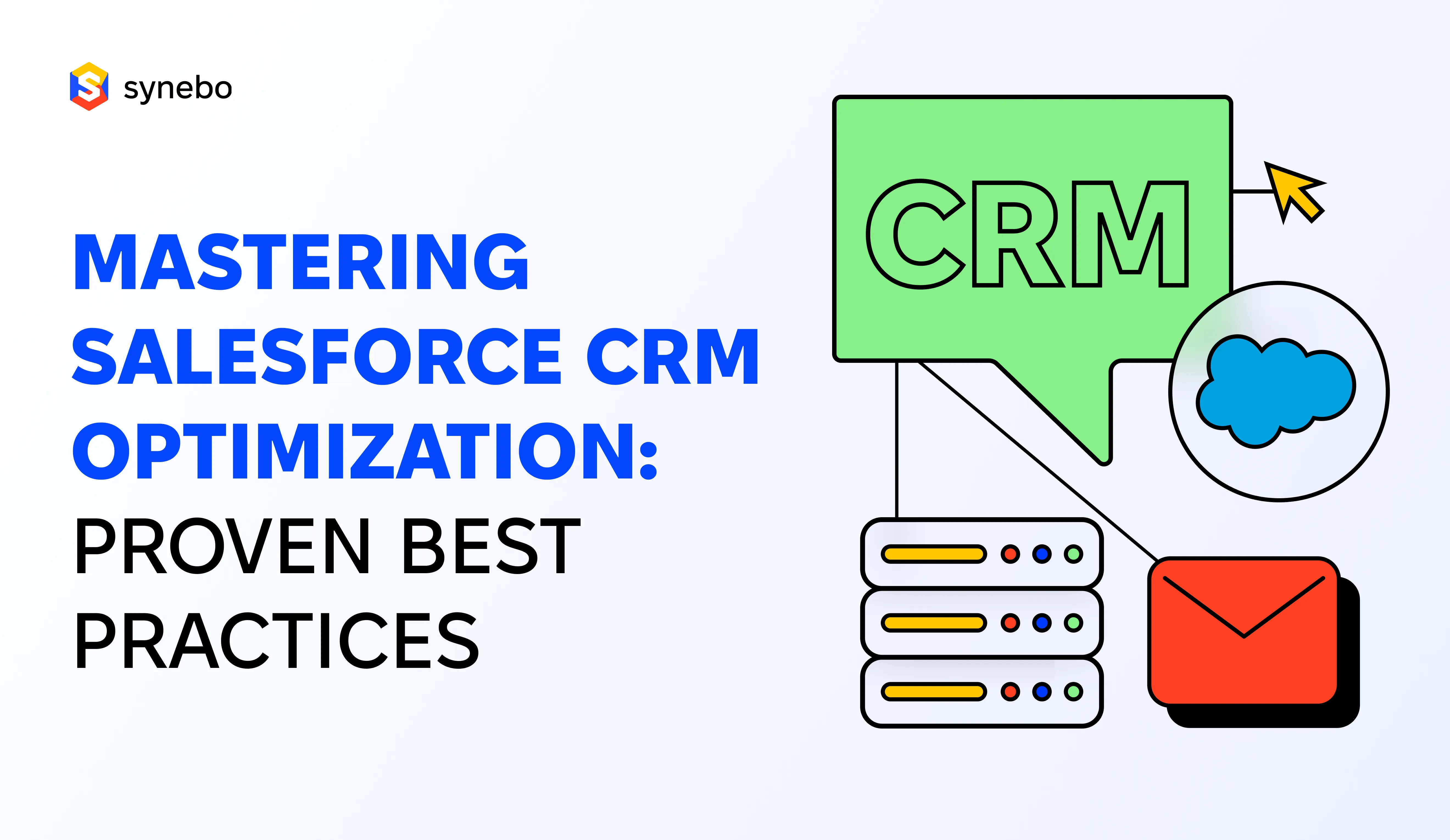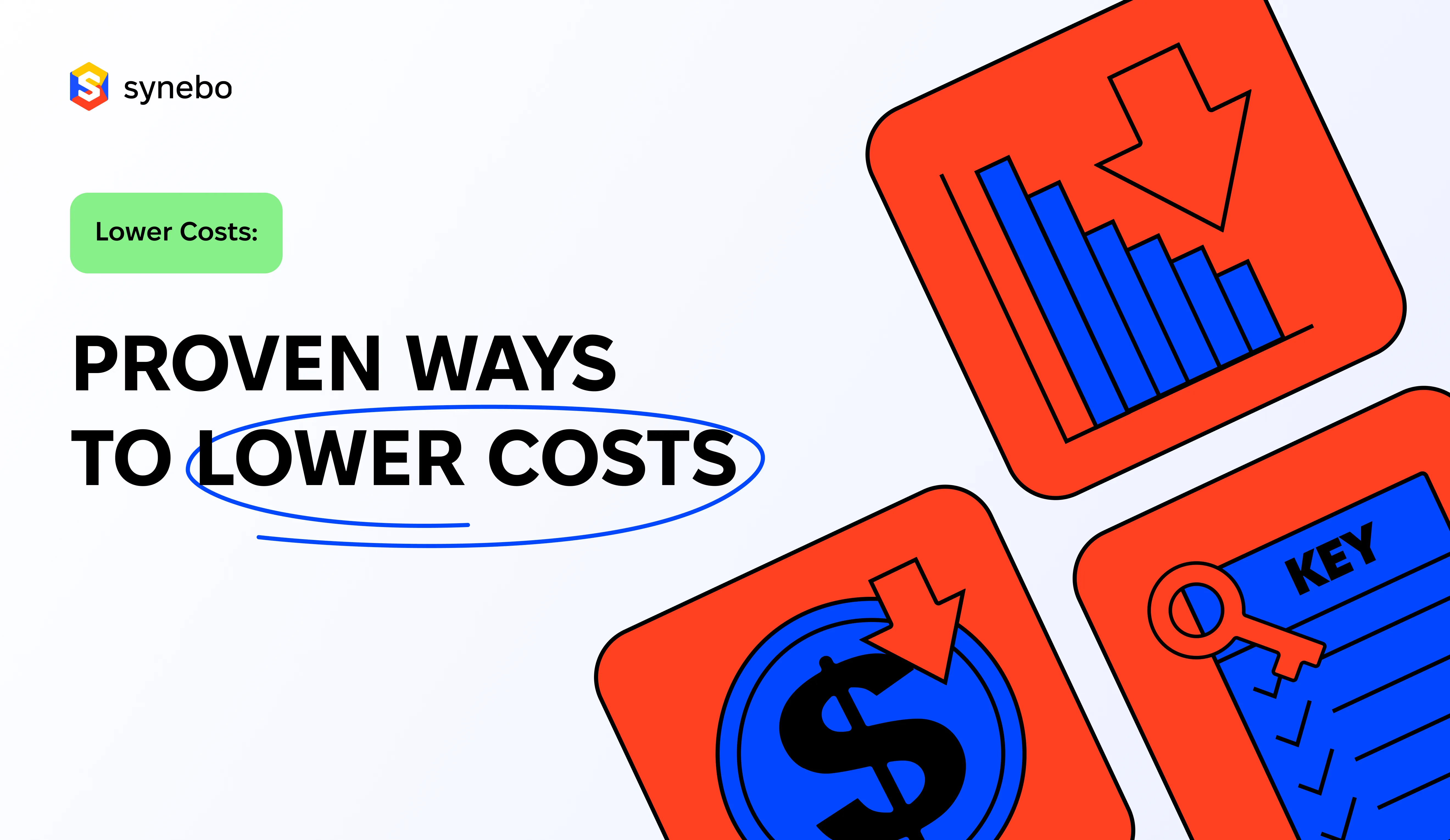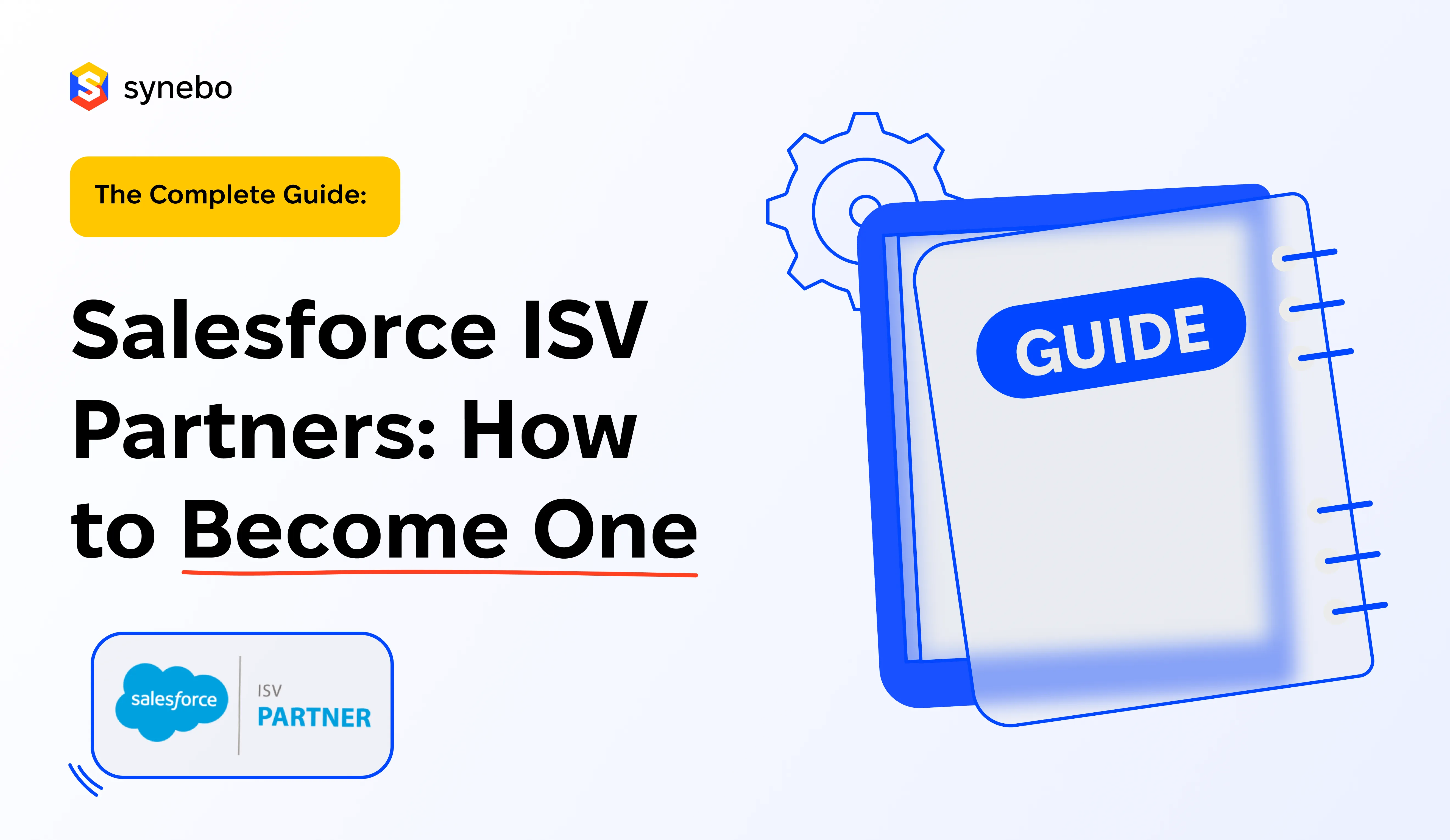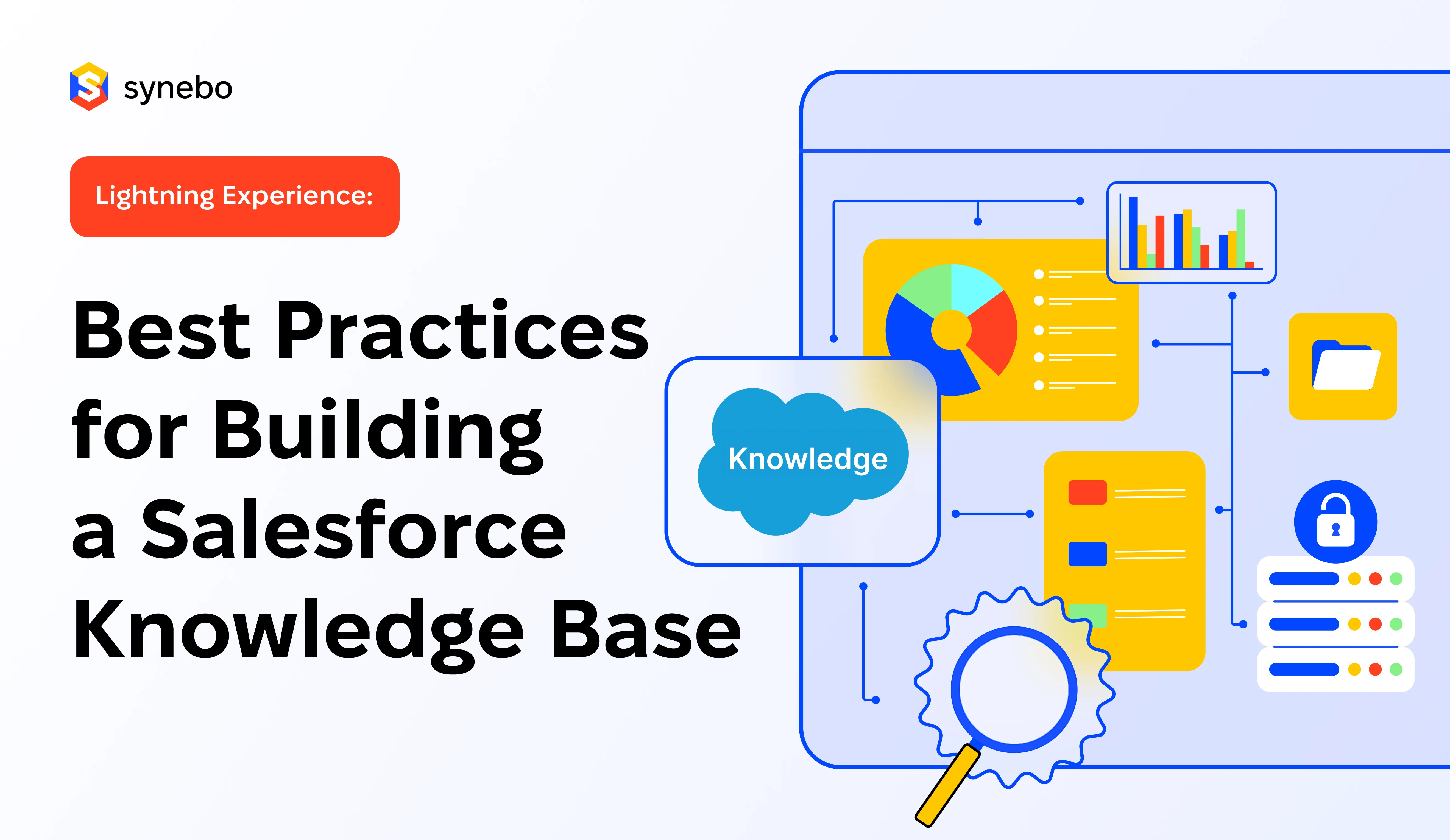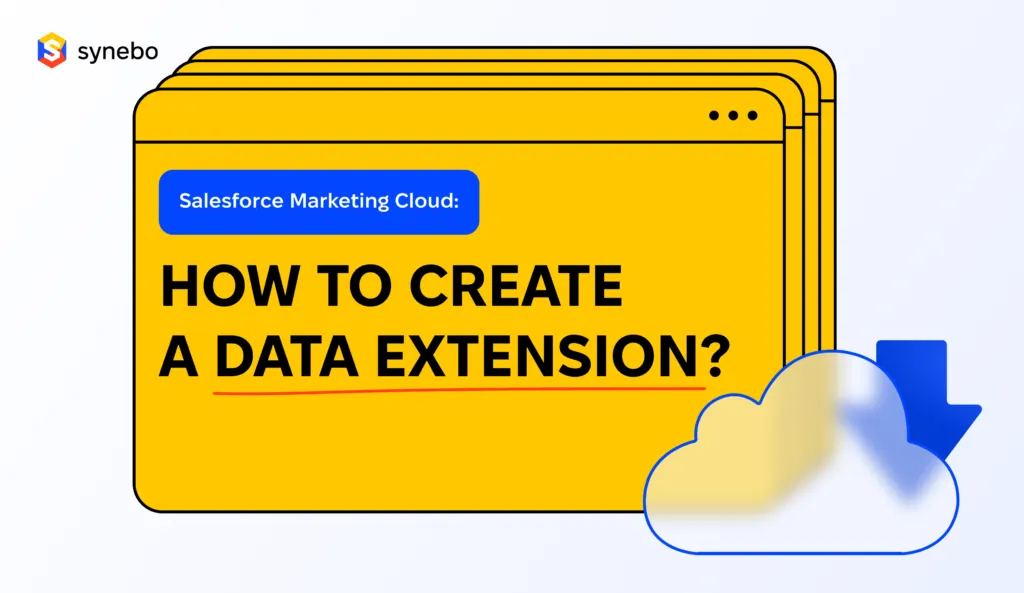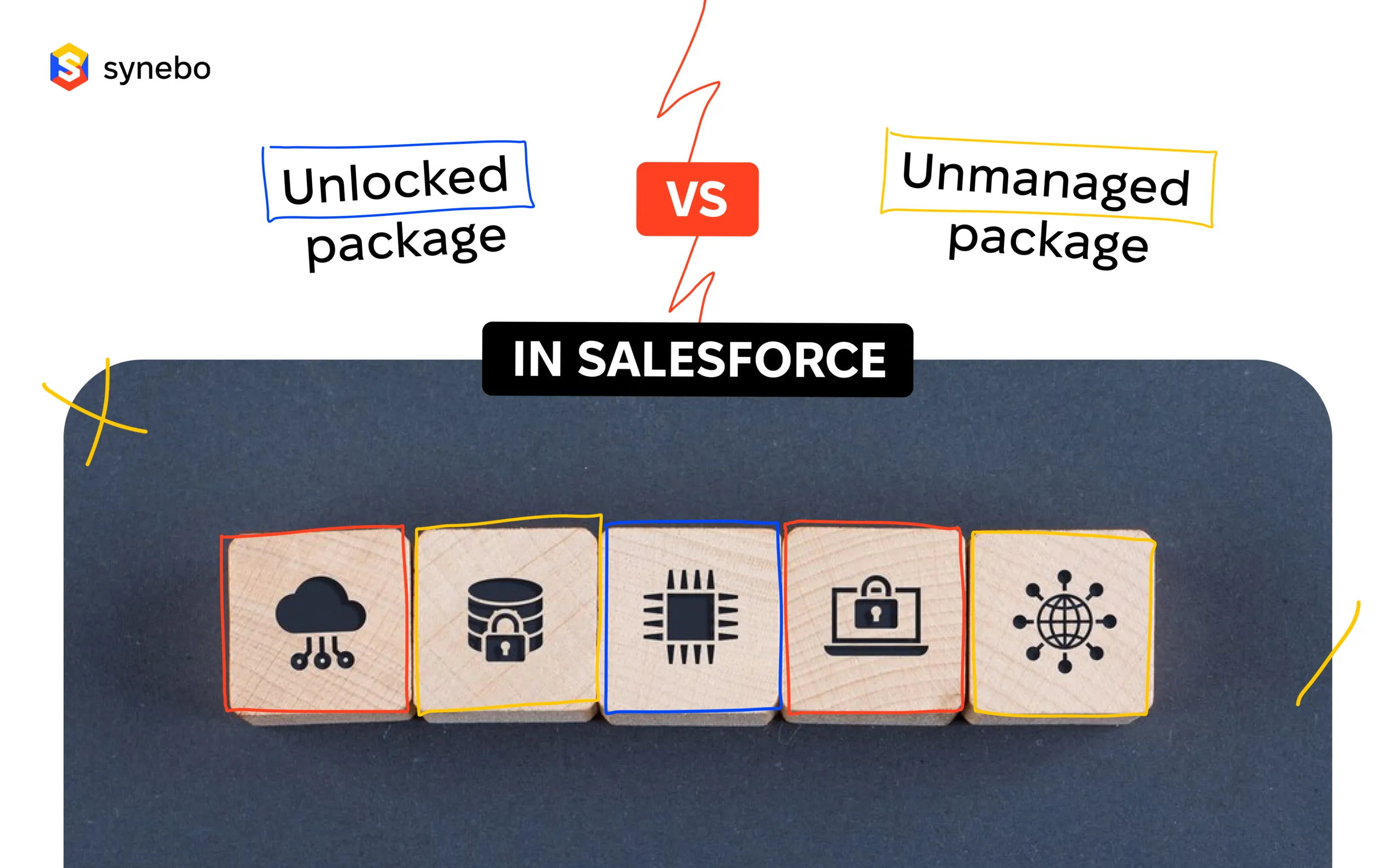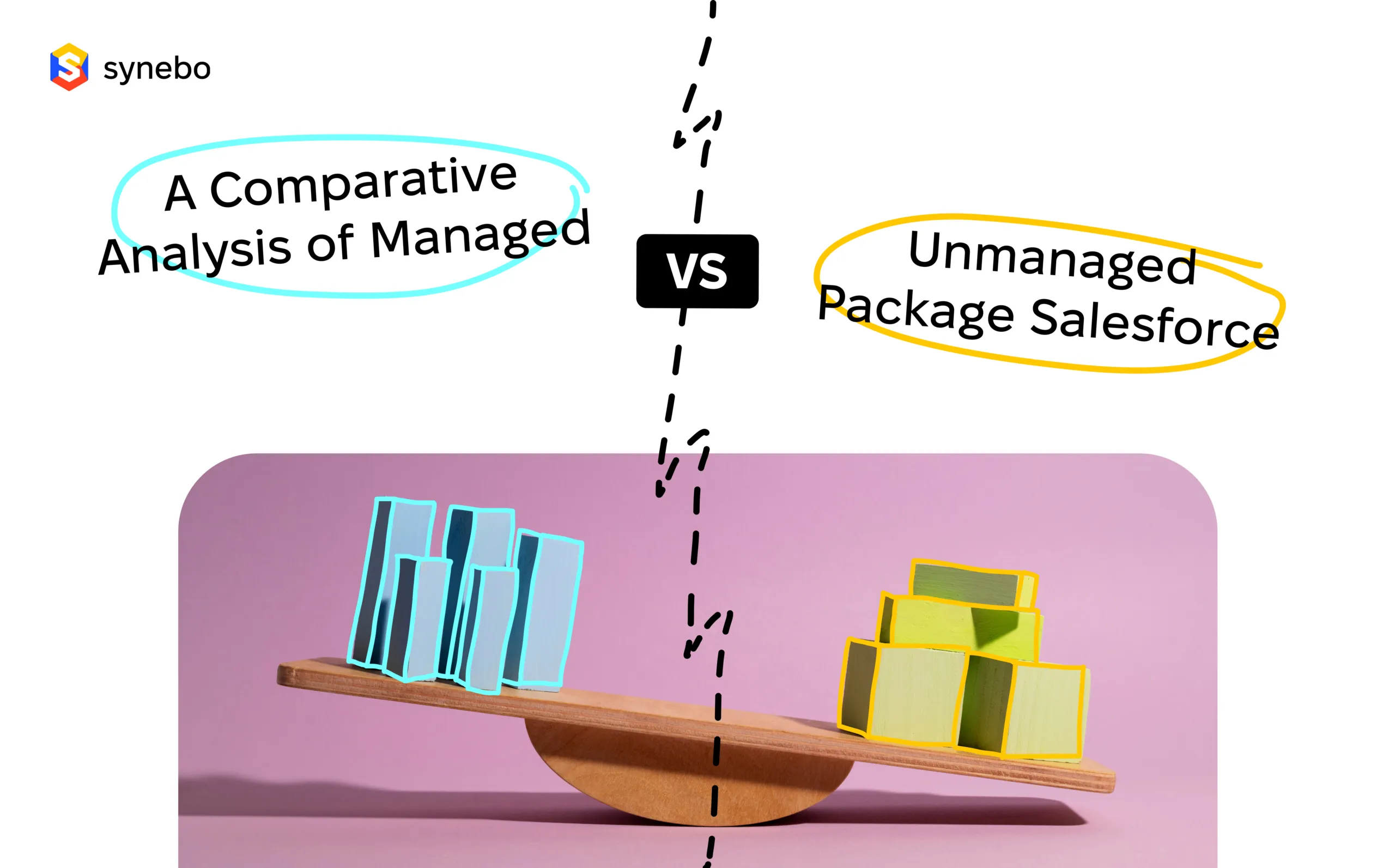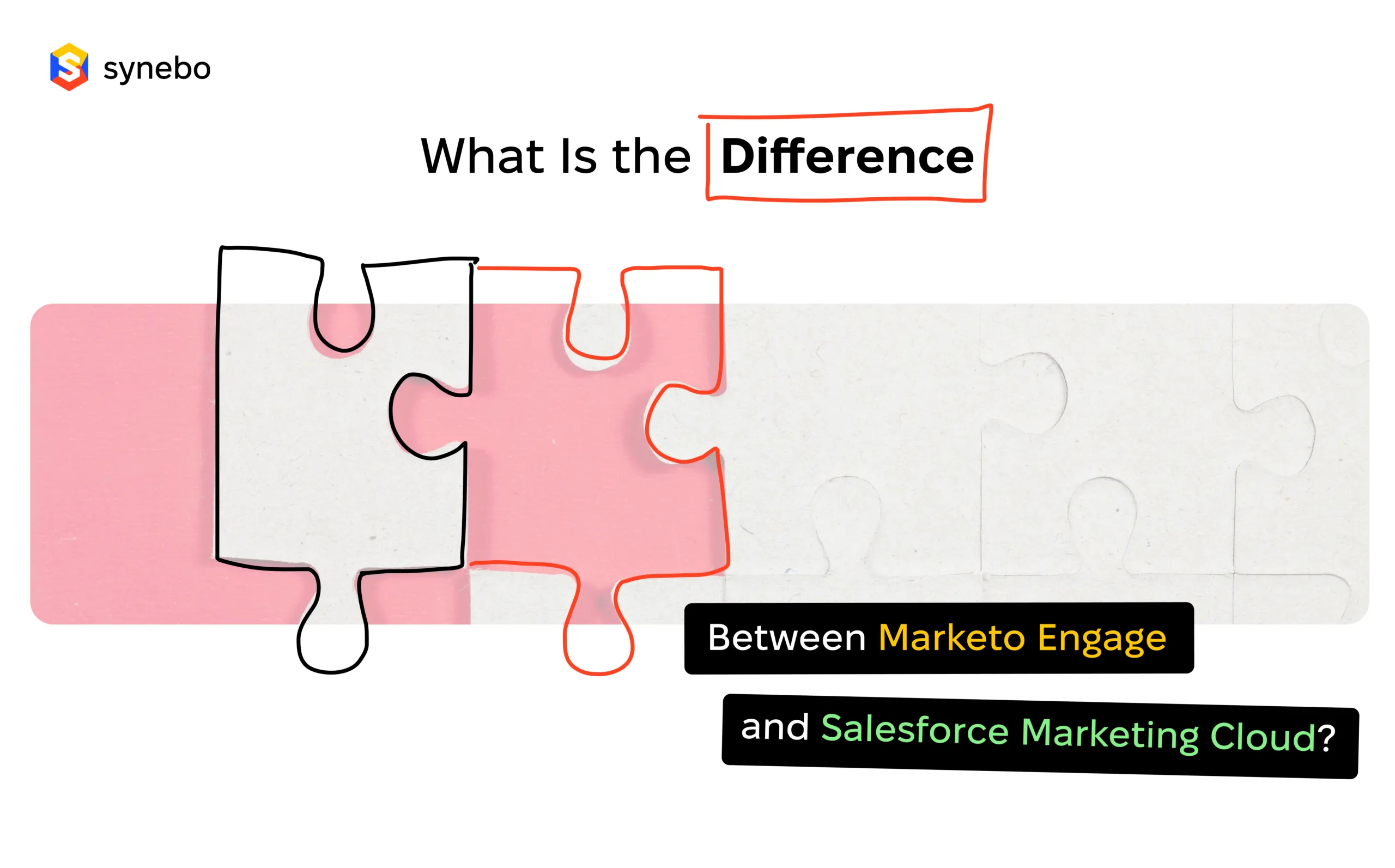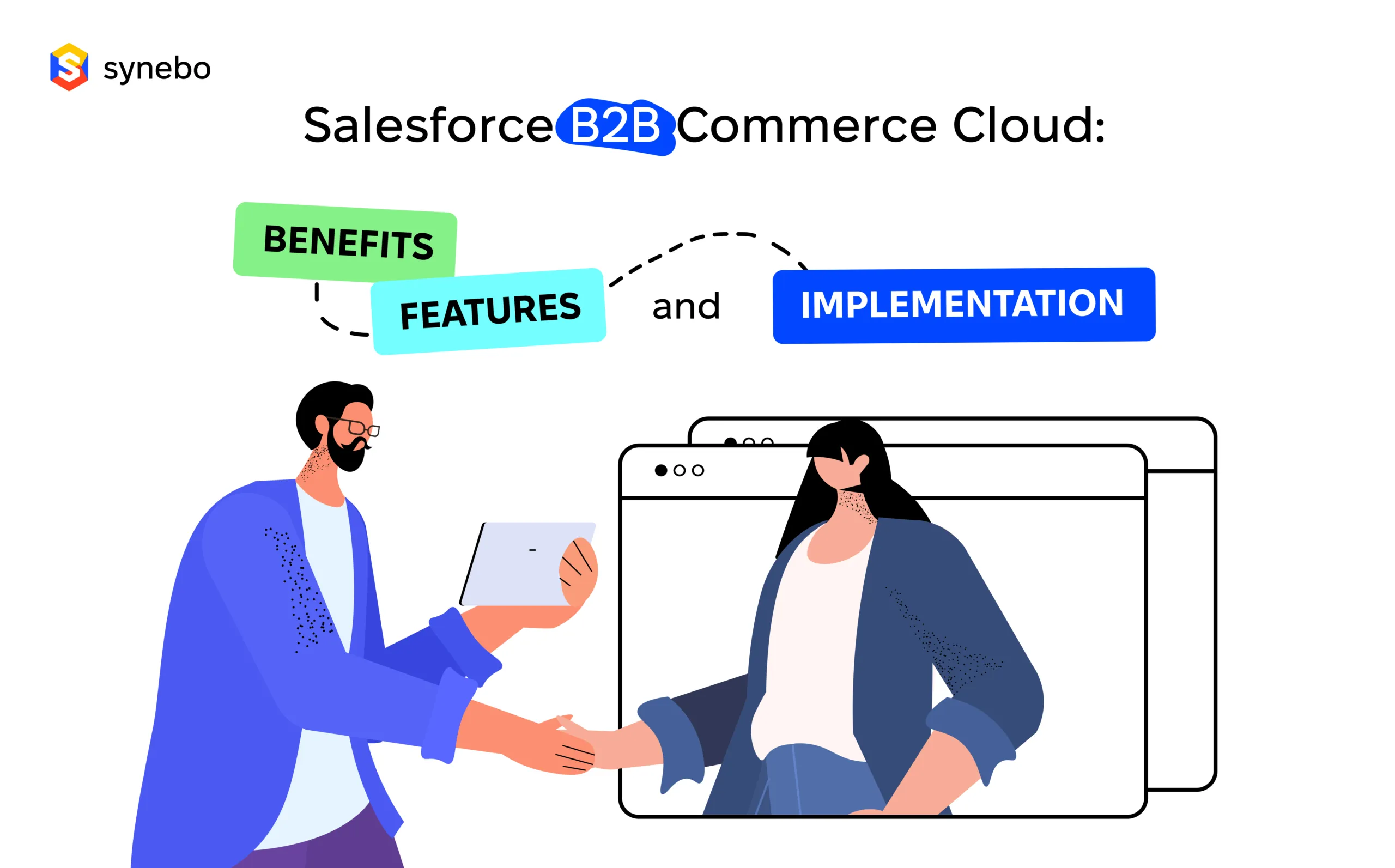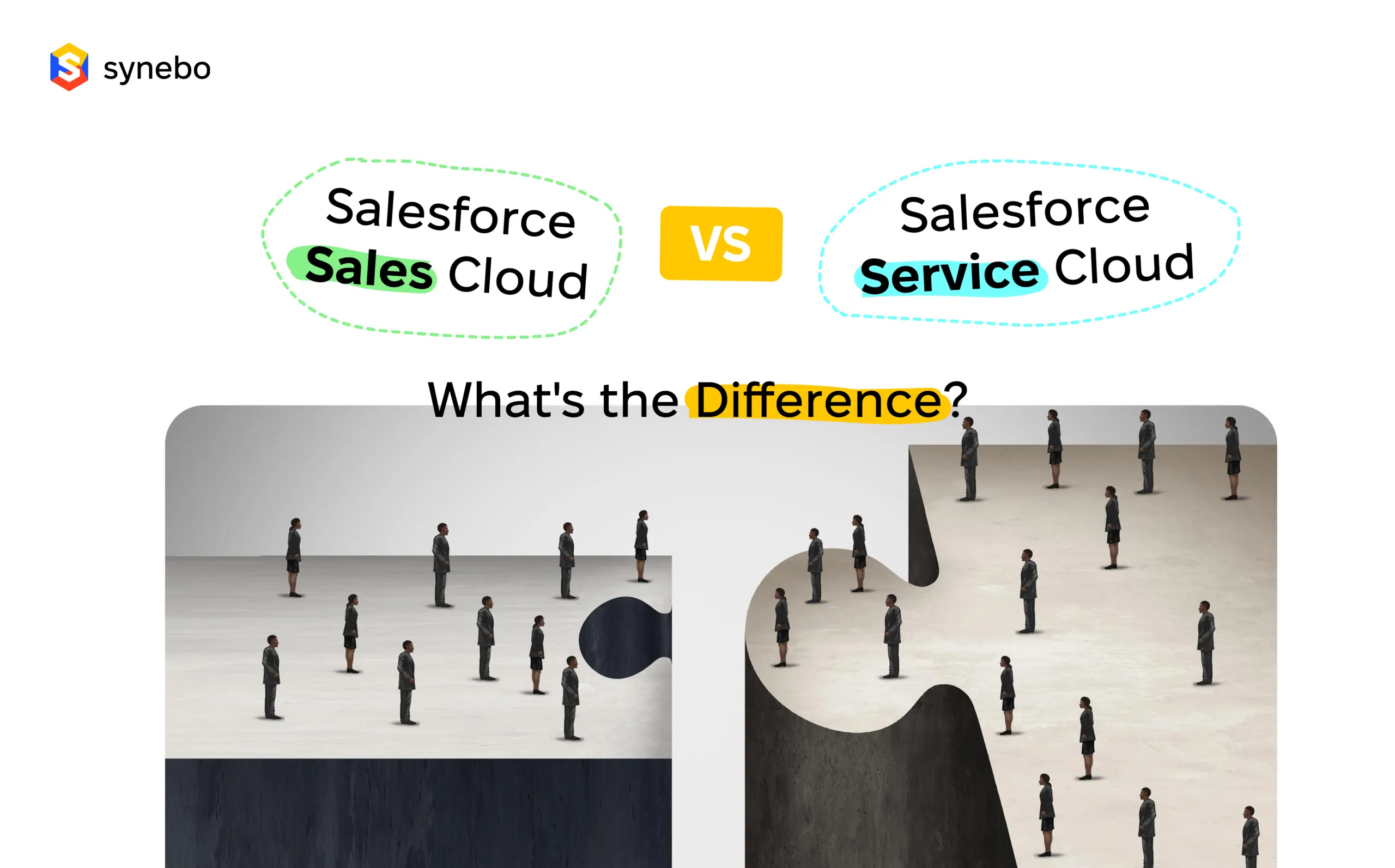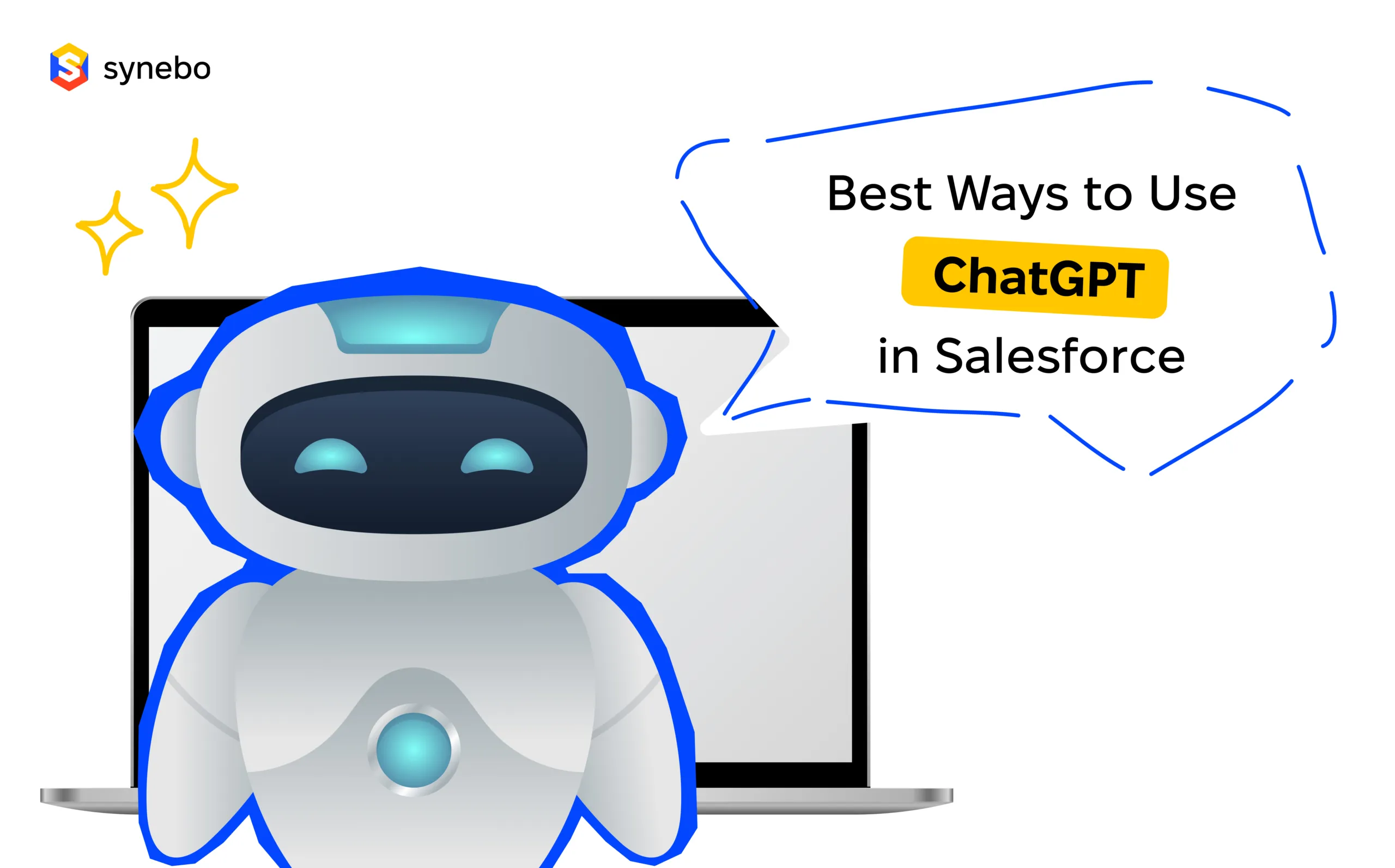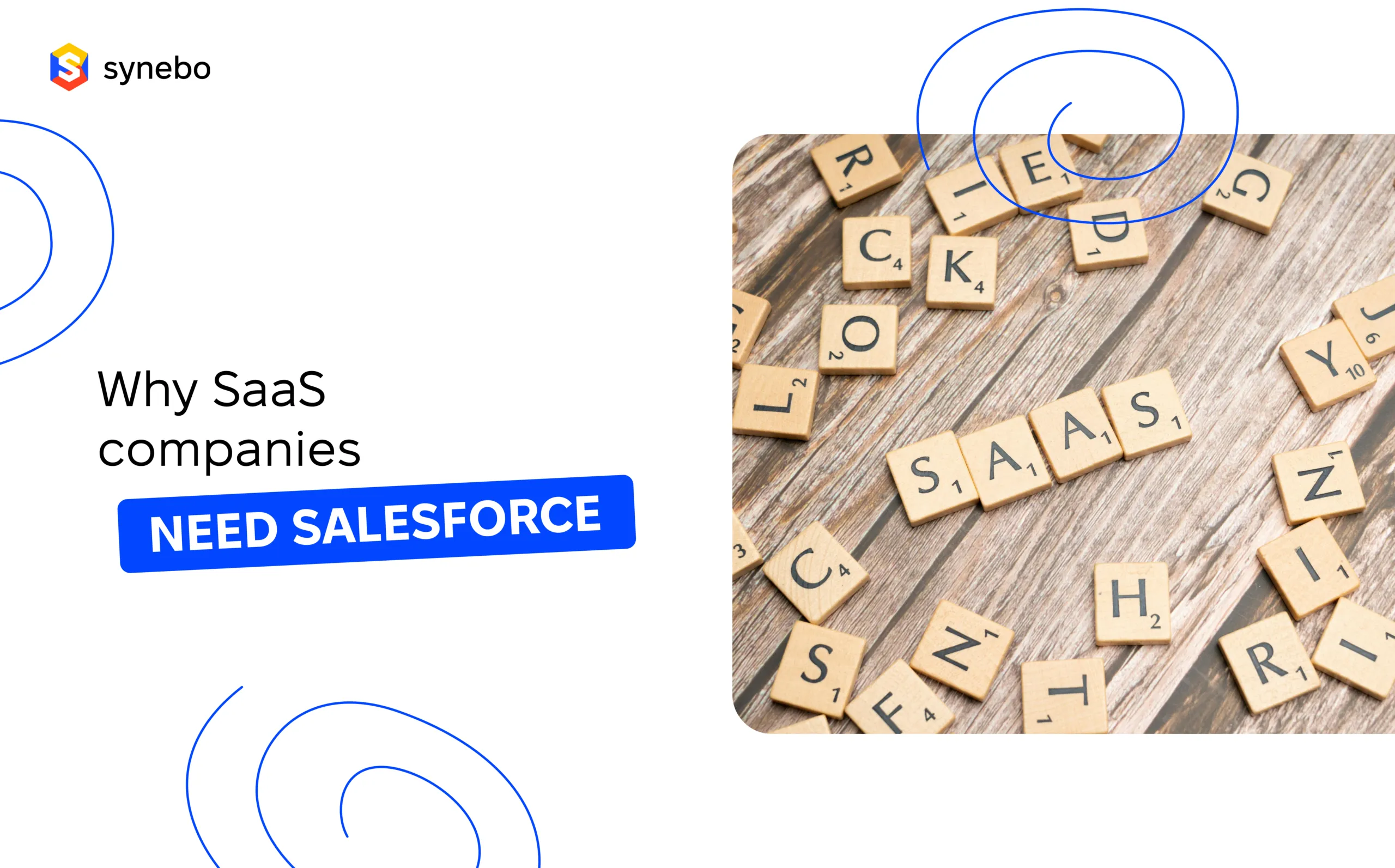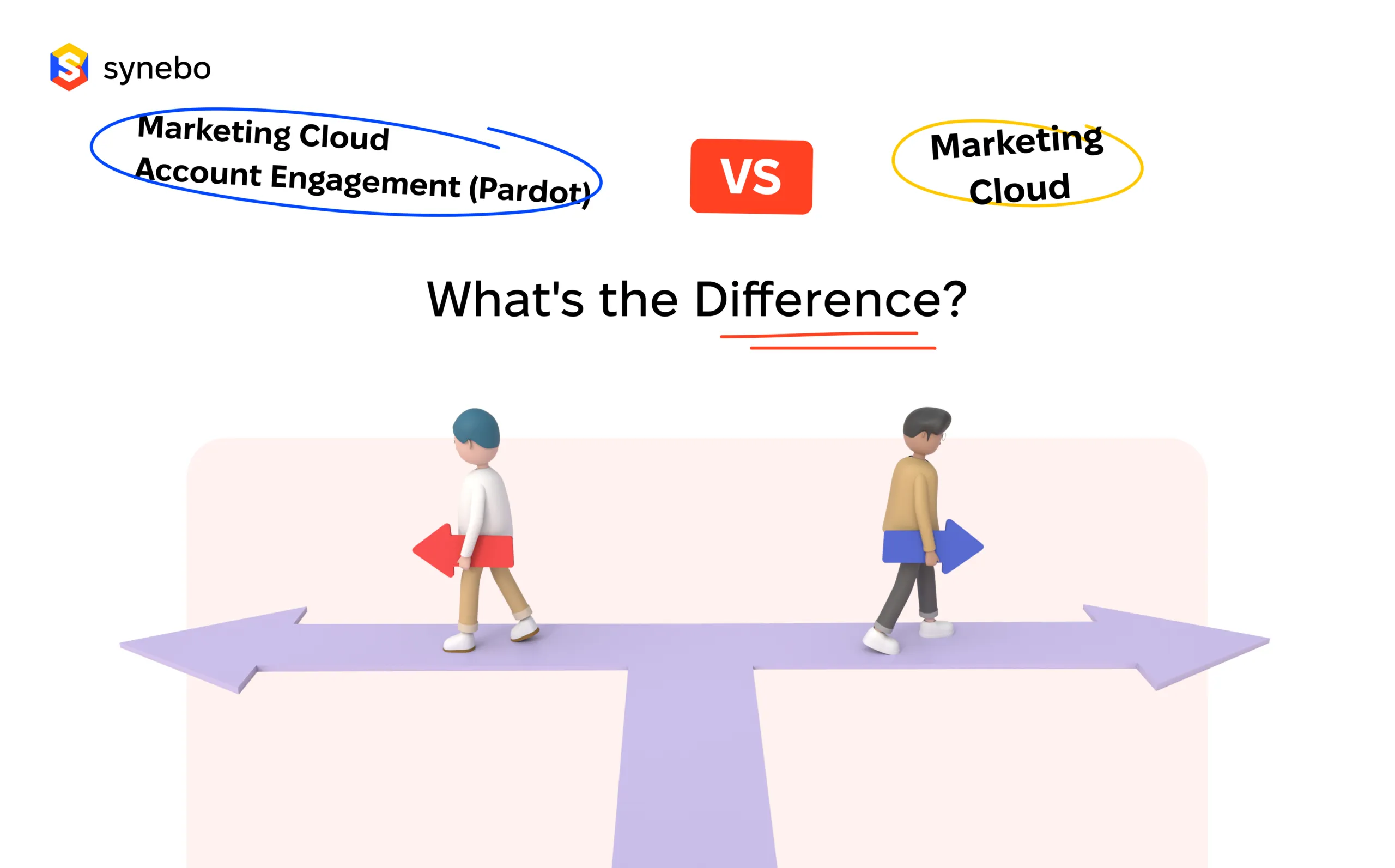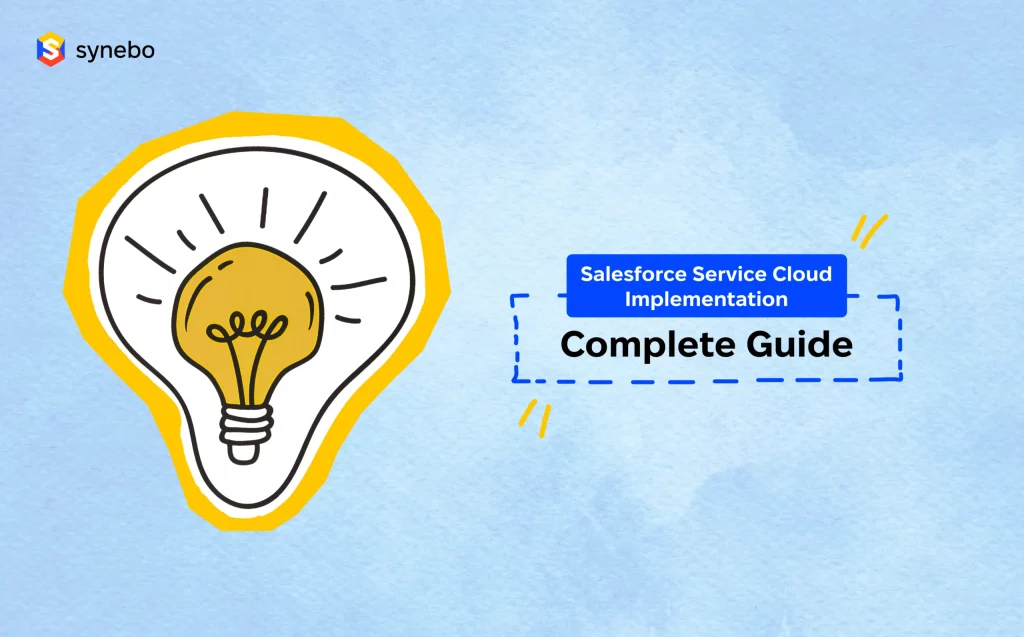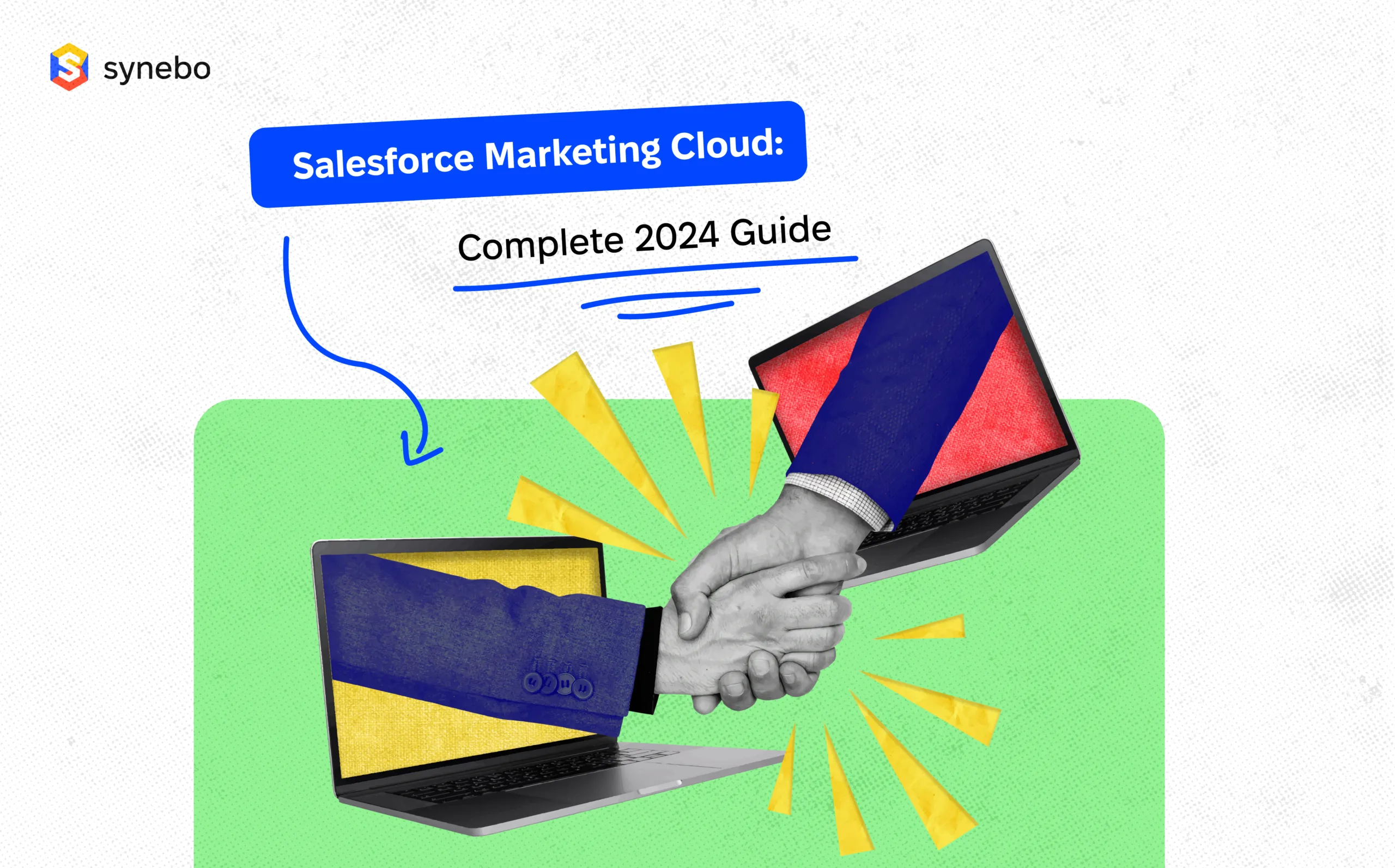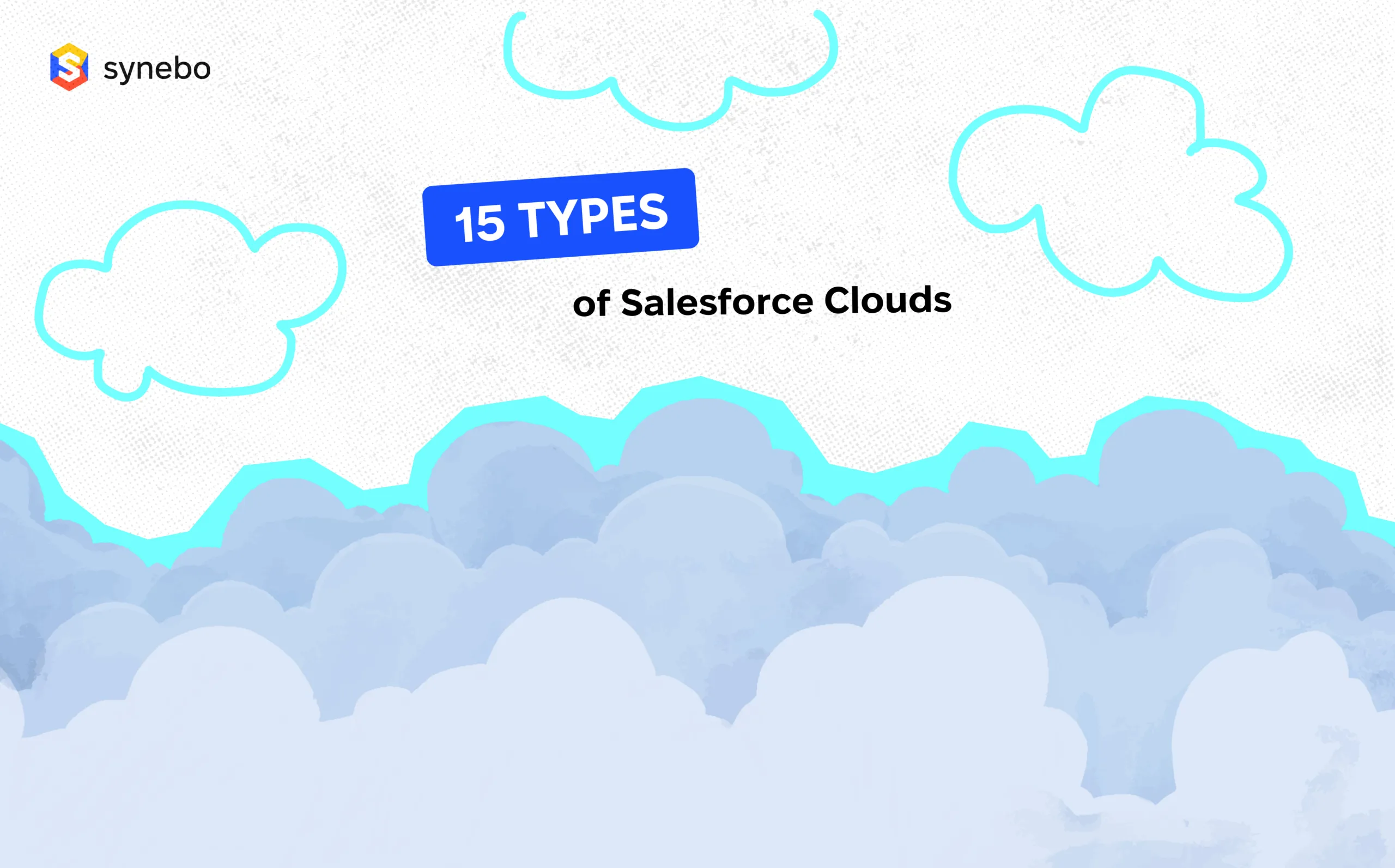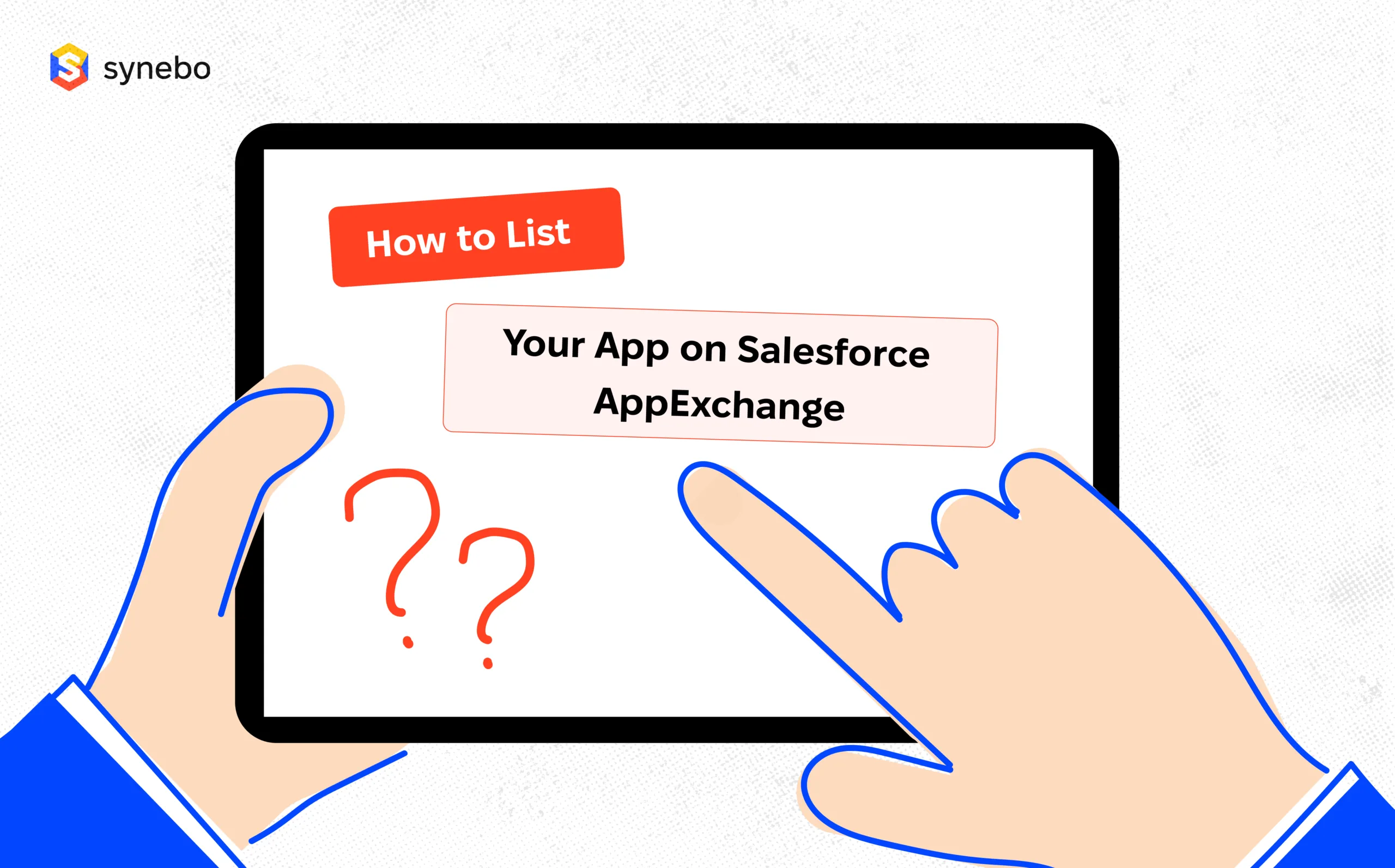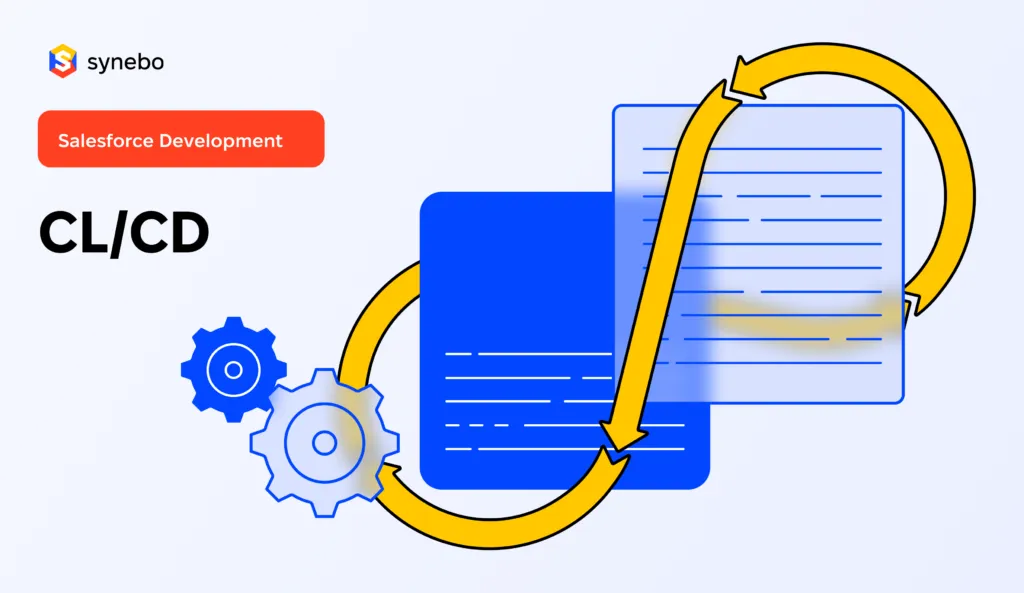Ultimate Guide to Mastering Salesforce Automation Tools
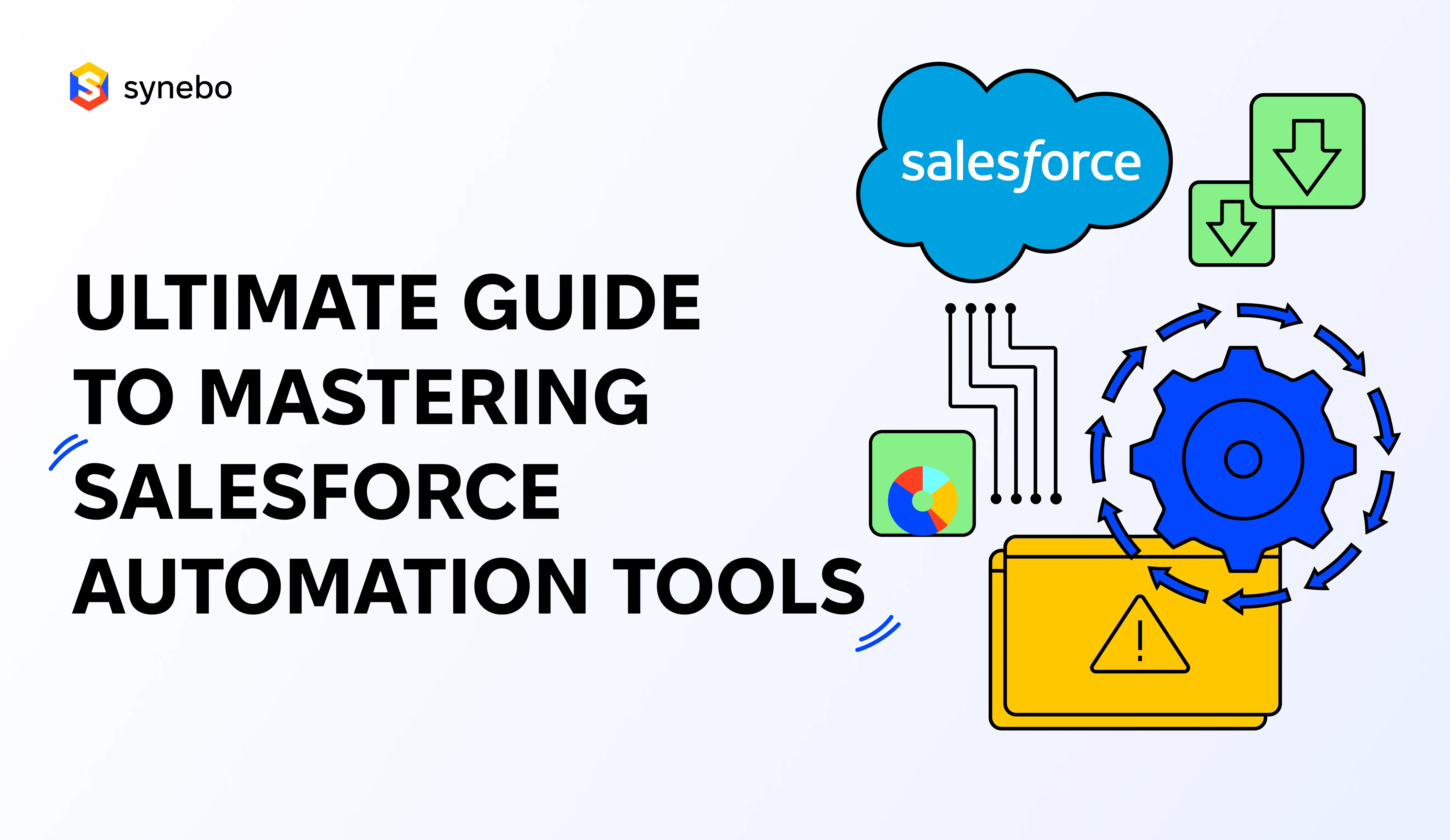
In today’s fast-paced business environment, automation is crucial for efficiency and growth. Salesforce, a leader in CRM solutions, offers a suite of automation tools that can increase productivity by up to almost 30% and improve sales forecast accuracy by 42%.
As a leading Salesforce development company, Synebo has witnessed firsthand the immense benefits that these tools bring to businesses of all sizes and industries. In this comprehensive guide, we explore the best Salesforce automation tools, highlighting their features, benefits, and real-world applications to help businesses streamline their operations and drive success. Discover how Salesforce automation tools can transform your workflow and enhance customer relationships.
What Are Automation Tools in Salesforce?
Salesforce Automation (SFA) tools have revolutionized how businesses manage their sales processes, enabling organizations to streamline operations, improve productivity, and enhance customer relationships.
Here’s the definition of automation tools:
Salesforce Automation Tools are software applications designed to automate and optimize various sales-related tasks.
From lead management and contact tracking to opportunity forecasting and pipeline management, these tools empower sales teams to work more efficiently and close deals faster.
One key aspect of automation tools in Salesforce is their ability to streamline the sales process by automating repetitive tasks. For example, these tools can automatically send follow-up emails, schedule appointments, and update contact information, saving sales professionals valuable time and allowing them to focus on building relationships with clients.
Benefits of Using Salesforce Automation Tools
The benefits of implementing Salesforce automation tools are manifold:
- Centralized customer data. Automation tools in Salesforce provide a holistic view of every interaction and touchpoint across the sales cycle.
- Enhanced relationship management. These tools identify cross-selling and upselling opportunities, enhancing customer satisfaction.
- Automation of repetitive tasks. Salesforce automation tools free up valuable time for sales professionals to focus on high-value activities.
- Accurate sales forecasting. These tools help organizations make data-driven decisions and optimize resource allocation.
- Improved team collaboration. Salesforce automation tools feature real-time updates, task assignment capabilities, and performance tracking metrics.
Discover how our Salesforce Development Services can transform your business operations and drive growth.
3 Key Features of Salesforce Automation Tools
Salesforce automation tools are designed to streamline and enhance the efficiency of sales processes. By leveraging these tools, businesses can effectively manage their customer relationships, automate routine tasks, and optimize their sales strategies. Here are three key features of automation tools in Salesforce that significantly contribute to achieving these goals.
#1 Contact Management
The contact management feature of Salesforce automation tools allows businesses to store and organize vital information about leads, prospects, and customers. From contact details and communication history to personal preferences and purchase behavior, this feature ensures that sales teams have access to all relevant information in one centralized location.
For example, imagine a sales representative is about to make a call to a prospective client. With Salesforce automation tools, the representative can quickly access the client’s contact record, review past interactions, and tailor the conversation based on the client’s preferences and needs. This level of personalization enhances the chances of successful conversions.
Moreover, the contact management feature goes beyond just storing basic contact information. It allows sales teams to segment their contacts based on various criteria, such as industry, location, or buying behavior. This segmentation enables targeted marketing campaigns and personalized communication, resulting in higher engagement and improved customer satisfaction.
#2 Task Management
Task management is a crucial feature of Salesforce automation tools that enables sales professionals to prioritize their daily activities and stay on top of their to-do lists. Whether it’s scheduling follow-up calls, sending proposal emails, or setting reminders for important meetings, this feature ensures that sales representatives never miss a beat.
Consider a scenario where a sales representative has multiple leads in various stages of the sales cycle. Using task management features, the representative can assign tasks, set deadlines, and track progress effortlessly. This level of organization and transparency improves collaboration within the sales team and prevents potential missed opportunities.
Furthermore, the task management feature allows sales teams to automate repetitive tasks, freeing up valuable time for more strategic activities. By automating routine tasks like data entry or lead assignment, sales representatives can focus on building relationships and closing deals, ultimately driving revenue growth.
#3 Opportunity Management
Opportunity management is a critical feature that enables businesses to track and manage potential deals from inception to closure. With Salesforce automation tools, sales teams can monitor the progress of each opportunity, track key metrics such as deal value and probability of closure, and allocate resources accordingly.
For instance, suppose a sales representative is working on a high-value opportunity and needs to collaborate with the marketing team to create a compelling proposal. By utilizing opportunity management features, the representative can easily assign tasks to the marketing team, monitor the progress, and ensure that the proposal meets the client’s expectations, thus maximizing the chances of closing the deal.
In addition to tracking individual opportunities, the opportunity management feature provides valuable insights into the overall sales pipeline. Sales managers can analyze the distribution of opportunities across different stages, identify bottlenecks, and make data-driven decisions to optimize the sales process. This level of visibility empowers sales teams to forecast revenue accurately and take proactive measures to achieve their targets.
Read our comprehensive Salesforce editions comparison guide to find the perfect fit for your business needs.
Choosing the Right Salesforce Automation Tool
Selecting among the best Salesforce automation tools for your organization is a critical decision that can significantly impact your efficiency and growth. With numerous options available, it’s essential to approach this process methodically to ensure you choose a tool that aligns with your specific needs and long-term goals.
Step 1: Assess Your Business Needs
Before embarking on the selection process, it is crucial to assess your organization’s unique requirements, goals, and budget. Each business has its own set of challenges and priorities, and selecting the right tool for Salesforce automation begins with a thorough understanding of these factors.
For example, if your organization is primarily focused on improving lead management and conversion rates, you may prioritize tools that offer advanced lead nurturing capabilities and analytics. On the other hand, if you operate in a highly regulated industry, data security and compliance features may be of utmost importance.
Moreover, it’s essential to consider the scalability of the tool. As your business grows, the automation tool should be able to accommodate the increasing volume of data and processes without compromising performance. Understanding your long-term growth strategy will help you choose a tool that can scale alongside your organization.
Step 2: Compare Different Tools
Once you have a clear understanding of your business needs, it’s time to evaluate the available best Salesforce automation tools in the market. Conduct Salesforce automation tools comparison, read user reviews, and consider factors such as scalability, ease of implementation, integration capabilities, and ongoing support.
Additionally, consider conducting pilot projects or requesting demos from potential vendors to gain firsthand experience with their tools. This approach will help you assess the usability, user interface, and overall suitability of each tool for your organization.
Integration capabilities are also crucial when comparing different tools. A seamless integration with your existing systems, such as CRM software, marketing automation platforms, and customer service tools, can streamline processes and provide a unified view of customer data across departments. Ensuring compatibility and smooth data flow between systems is key to maximizing the benefits of a Salesforce Automation Tool.
To save your time, we’ve prepared the Salesforce automation tools comparison for you, so that you have all the important information at hand about each option available:
|
Tool |
Features |
Benefits |
Scalability |
Integrations |
Pricing |
|
|
Highly scalable |
|
Starts at $25/user/month |
|
|
|
Scalable with business growth |
|
Starts at $75/user/month |
|
|
|
Supports growing marketing needs |
|
Custom pricing |
|
|
|
Suitable for businesses of all sizes |
|
Starts at $1,250/month for up to 10,000 contacts |
|
|
Salesforce CPQ (Configure, Price, Quote) |
|
|
Scales with product catalog expansion |
|
Custom pricing |
|
Salesforce Einstein Analytics |
|
|
Scales with data growth |
|
Starts at $75/user/month |
|
Salesforce Field Service |
|
|
Scalable with field service operations |
|
Starts at $50/user/month |
|
Salesforce Community Cloud |
|
|
Suitable for growing communities |
|
Starts at $2/user/month (member-based) |
Ensure a smooth transition with our expert Salesforce implementation services. Get started today!
Implementing Salesforce Automation Tools
Implementing Salesforce automation tools requires careful planning and execution to ensure a smooth transition and maximum adoption within your organization.
Here are some steps to follow for successful implementation:
- Define clear objectives. Identify the specific goals you aim to achieve with the implementation of automation tools in Salesforce. Whether it’s improving sales productivity, enhancing customer satisfaction, or driving revenue growth, having a clearly defined purpose will guide the entire implementation process.
- Customize the tool to your needs. Tailor the tool’s settings, workflows, and functionalities to align with your organization’s unique requirements. Engage with your sales team to gather their input and ensure that the tool supports their daily workflows.
- Provide comprehensive training. Conduct thorough training sessions to familiarize your sales team with the Salesforce automation tool. Emphasize the benefits and address any concerns or resistance to change. Training should include hands-on exercises, real-world examples, and ongoing support.
- Monitor progress and make adjustments. Regularly monitor the implementation process, track key performance indicators, and gather feedback from users. This will enable you to identify areas for improvement and make necessary adjustments to maximize the tool’s effectiveness.
Common Implementation Challenges and Solutions
Implementing the chosen Salesforce automation tool may come with certain challenges, but with proper planning and proactive measures, these can be overcome. Common challenges include:
- Resistance to change
To address resistance to change, ensure open and transparent communication throughout the implementation process, highlighting the benefits and addressing concerns.
- Data migration complications
For data migration challenges, perform thorough data cleansing and mapping before the implementation, and involve qualified data migration specialists if needed.
- User adoption hurdles
To improve user adoption, provide ongoing training and support, designate power users to act as internal champions, and continuously communicate the positive impact of the tool on productivity and efficiency.
Furthermore, it is crucial to establish a governance structure to oversee the implementation and ongoing usage of Salesforce automation tools. This structure should include key stakeholders from various departments, such as sales, marketing, and IT, to ensure cross-functional alignment and collaboration. Regular meetings should be held to discuss progress, address challenges, and make strategic decisions to optimize the tool’s functionality.
In addition, it is important to consider the scalability of the Salesforce automation tools implementation. As your organization grows and evolves, the tool should be able to accommodate increasing data volumes, user demands, and changing business processes. Regularly assess the scalability of the tool and make necessary adjustments to ensure its long-term effectiveness.
Lastly, it is worth mentioning the importance of data security and privacy when implementing automation tools in Salesforce. Ensure that the tool complies with relevant data protection regulations and implement robust security measures to safeguard sensitive customer information. Regularly review and update security protocols to stay ahead of potential threats and maintain the trust of your customers.
Learn more about our Salesforce Consulting services to maximize your CRM efficiency and success.
Best Practices for Optimizing Your Use of Salesforce Automation Tools
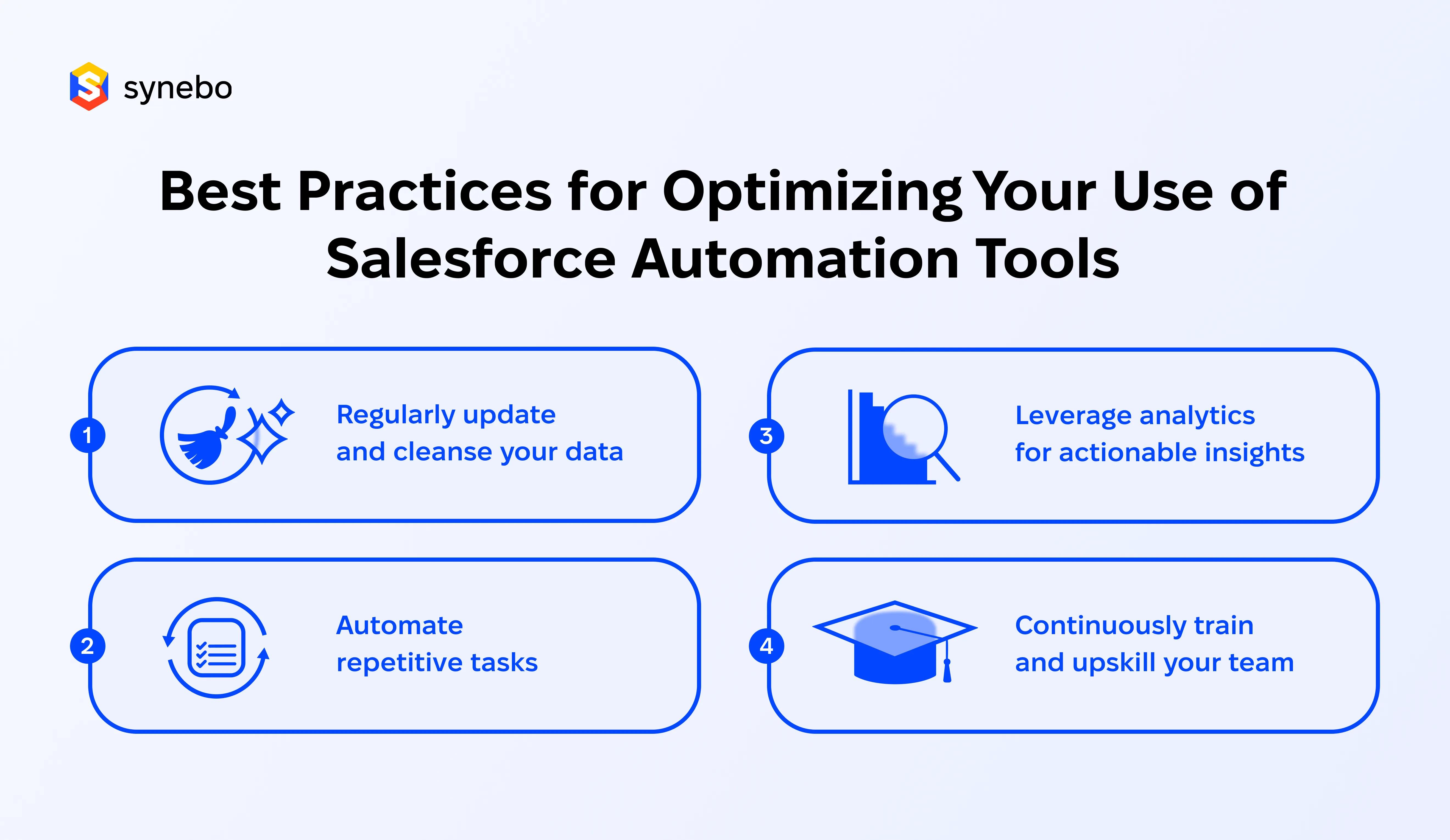
To extract the maximum value from Salesforce automation tools, we recommend implementing the following best practices:
- Regularly update and cleanse your data. Ensure that your customer database is up-to-date, accurate, and free of duplicates. Regularly review and update contact information, monitor data quality, and invest in data cleaning tools if necessary.
- Automate repetitive tasks. Identify manual tasks that can be automated using the tool’s features. By leveraging automation, your sales team can focus on activities that require human intervention, such as building relationships and providing personalized customer experiences.
- Leverage analytics for actionable insights. Leverage the analytics capabilities of your Salesforce Automation Tool to gain valuable insights into your sales performance, customer behavior, and market trends. Use these insights to make data-driven decisions and optimize your sales strategies.
- Continuously train and upskill your team. Technology is constantly evolving, and it is essential to keep your team up to date with the latest features and best practices of your Salesforce Automation Tool. Encourage continuous learning, provide training resources, and organize regular workshops to enhance your team’s proficiency.
Regular Maintenance and Updates
Regular maintenance and updates are essential for the optimal performance of your Salesforce Automation Tool. Keep track of new feature releases and updates from the vendor and ensure that your tool is always up-to-date. Additionally, periodically review and optimize your workflows, settings, and configurations to align with your evolving business needs.
Furthermore, it is crucial to regularly assess the effectiveness of your Salesforce automation tool implementation. Conducting periodic audits can help identify areas for improvement and ensure that you are maximizing the tool’s capabilities. Consider engaging with a Salesforce consultant who can provide expert guidance and recommendations tailored to your specific business requirements.
Another aspect to consider is the integration of your Salesforce Automation Tool with other systems and applications. By integrating your tool with other tools such as your customer relationship management (CRM) system, marketing automation platform, and customer support software, you can create a seamless and efficient workflow across your organization. This integration allows for better data synchronization, improved collaboration, and a holistic view of your customer journey.
Moreover, it is essential to establish clear guidelines and processes for data governance and security. Define roles and responsibilities for data management, establish data access controls, and regularly review and update your security protocols to protect sensitive customer information. By prioritizing data governance and security, you can build trust with your customers and ensure compliance with data protection regulations.
Learn how to maintain and optimize your CRM with our Salesforce health check guide.
The Future of Salesforce Automation Tools: Preparing Your Business for Future Developments
With the rapid pace of technological advancements, it is crucial for businesses to adapt and embrace the potential of automation tools in Salesforce. By staying abreast of the latest trends and leveraging the power of these tools, businesses can gain a competitive edge, enhance sales efficiency, and foster meaningful customer relationships.
As technology continues to advance, Salesforce automation tools are poised to become even more powerful and integral to sales operations. Some emerging trends to watch out for include:
- Artificial Intelligence and Machine Learning
One exciting area of development is the integration of automation tools in Salesforce with Artificial Intelligence (AI) and Machine Learning (ML) capabilities. This integration allows sales teams to harness the power of AI to analyze vast amounts of data, identify patterns, and make accurate predictions. AI-powered features such as predictive lead scoring, chatbots, and automated email responses are expected to become more prevalent, enabling sales teams to leverage data-driven insights and automation.
- Integration with IoT and big data
Another significant trend is the integration of Salesforce automation tools with Internet of Things (IoT) devices and Big Data analytics. This integration enables organizations to gather real-time data from various sources, such as sensors and wearables, and analyze it to gain valuable insights. By leveraging this data, businesses can personalize their sales approach, tailor their offerings to individual customer needs, and make data-driven decisions that drive revenue growth.
- Mobile-first approach
The increasing reliance on mobile devices has led to a mobile-first approach in Salesforce automation tools. Sales professionals are no longer confined to their desks but can access critical information and perform tasks on the go. Mobile functionality allows them to update customer records, track sales activities, and communicate with prospects and clients, all from their smartphones or tablets. This flexibility and accessibility empower sales teams to be more productive and responsive, ultimately leading to improved customer satisfaction and increased sales.
To prepare your business for future developments in Salesforce, it is essential to stay informed about the latest industry trends and advancements. Regularly attend industry conferences and webinars, join professional forums, and engage with technology experts to gain insights into upcoming features and best practices. Furthermore, maintain a culture of continuous improvement, encourage experimentation with new features, and foster an environment where innovation is welcomed.
Explore the advantages and steps to becoming a Salesforce ISV partner in our complete guide.
Salesforce automation tools offer immense benefits, from centralizing customer data and automating repetitive tasks to improving team collaboration and accurate sales forecasting. By choosing the right tool tailored to your business needs, you can streamline operations, enhance productivity, and drive growth.
As technology continues to evolve, staying informed and adaptable is crucial for leveraging these tools effectively. Embrace Salesforce automation to transform your workflow and foster meaningful customer relationships, setting your business up for long-term success. To help you achieve this, Synebo is here to guide you every step of the way.
As a certified Salesforce partner and PDO, we specialize in developing and enhancing custom CRM solutions tailored to your unique business needs. From comprehensive Salesforce Consulting to Development, Integration, and beyond, our expert team is dedicated to ensuring your success.
Don’t miss the opportunity to drive growth. Contact Synebo today!


